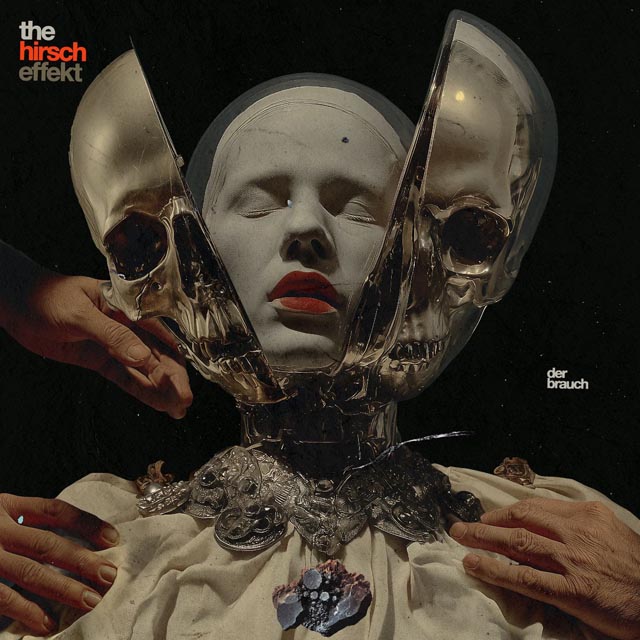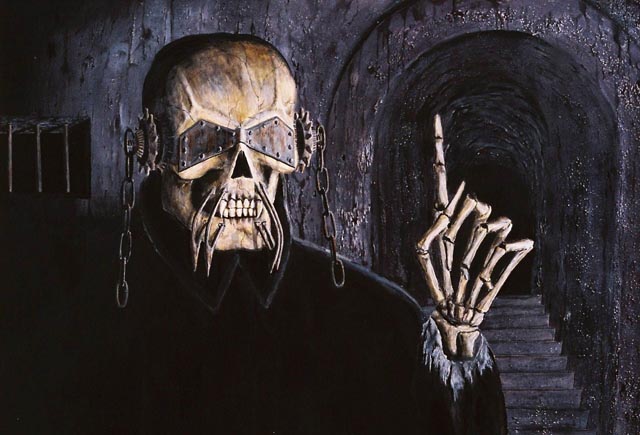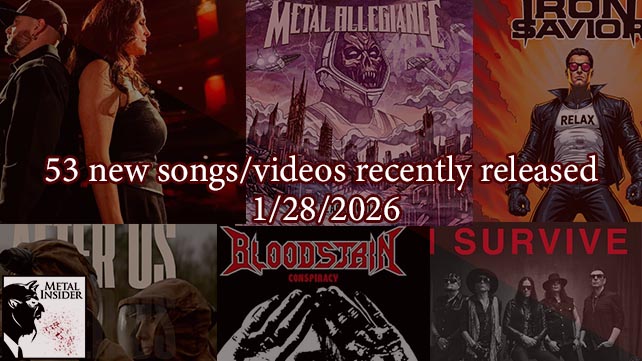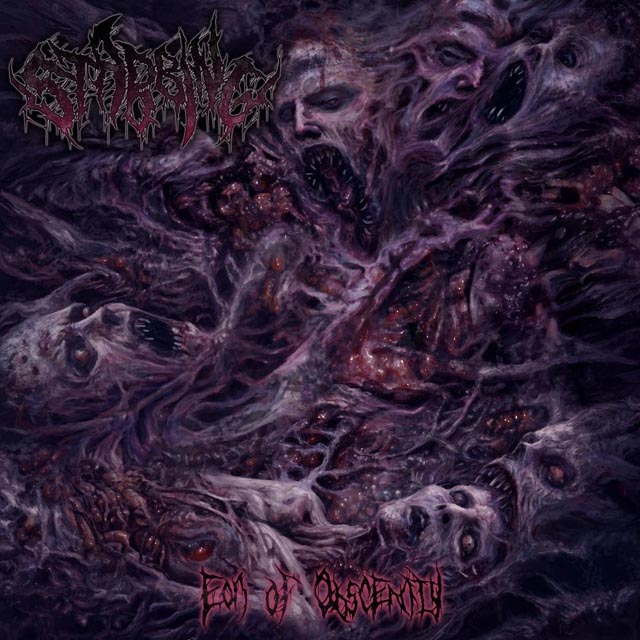
While perhaps getting the least spotlight of the four memebers in Pantera, bassist Rex Brown was a driving force behind the multi-platinum band from it’s just after it’s formation in 1981 to their breakup in 2003. His time in Pantera also led to playing bass for sludge-metal supergroup Down for their sophomore album, and more recently in Kill Devil Hill. He’s never fronted a band until now, however.
Smoke On This, Brown’s debut solo album, will be released on July 28th on eOne, and is a decidedly more rock-leaning record than the thrash of Pantera. Recorded in Nashville, the album is different than anything he’s done in his career. In leading up to the release, we asked Brown to run down the albums in his career and his thoughts on each. Watch the video, edited by Zenae Zukowski, below, and follow along via the transcription.
We’re here to talk about your new album, but I thought it might be interesting to take a step back and look at the albums that brought you to where you are now. Lets go with the Pantera albums before you were signed.
You can pick one, whichever.
Let’s go with Power Metal.
That was Phil getting his feet wet with the band. He was extremely young, we all were, but we had been in the club for about five years couldn’t get the hell out Dallas and just one of those things where we had the songs already kind of written and then Phillip came in the band and everything we just started growing quickly into this groove thing.That was the precursor of what finally after that record we just said ‘fuck it man’ we’re going to do whatever we want to do and that was what really changed everything.
I guess we can actually start with Metal Magic.
Man, I was 17 years old. I remember Dime calling me about 11:30 at night. I had just been at band practice and I walked in the door and my mom told me – she was so livid, “Dime wants you down the street, oh and, you have school in the morning,” and I said ‘well, no. I’m missing school tomorrow, I’m going to the studio.’ They’re all heading to the studio and I went down and played three tracks and just straight off the cuff, and the rest is history.
Was that the end of school for ya?
No, I still tried to finish.
We’ll move onto the album in-between that which I guess would be Projects in the Jungle.
Projects in the Jungle. That actually had some really good songs on it. A little Def Leppard-inspired thing. You have to remember we were 17, 18 and 19 when those first three came out so we were just exploring the territory. Second of all, is the old man [ed, note: Dime and Vinnie’s father Jerry Abbott] had a studio, we didn’t have to pay for studio time, so they went really quickly. But if you listen back to that stuff and you see how the progression of, say, like how Cowboys came to be. That was when we were playing, you know, proms, bar mitzvahs, or skating rinks, just getting gigs. In those days was all that puffy hair bullshit and we finally got tired of all that and just went a la carte.
You guys were really prolific, like pretty much an album a year.
That’s where we really got solidified in what we were going to do. It might have taken a little bit longer, but if you think about it, bands don’t get together in six weeks and make a record anymore. They’re together for quite some time and then they have that first record and they go bite it on the second one.
You did not do that.
No, we went the opposite direction. We went ‘ok this will be the easy route to go’ we just do Cowboys From Hell II. But Cowboys From Hell it was, people didn’t know what to think about it, especially in Europe I mean people would just –
People were scared by it?
Yeah. I’m told Judas Priest, for three and a half months, they didn’t wanna know us. And then we went and did Vulgar, and really the rest, that record just – There was such spontaneity and just us being on the road for 338 days, and having a month off and we just nail it, just killed it. We went to Moscow as a bar band playing in front of a million people and it was Disneyland, it was insane. And that’s what it was, just to get one little spark.
Did you remember if you played plenty of songs on Vulgar on the road before you recorded it?
We had stuff in soundchecks. That’s been a long ways back, I don’t wanna say we played the whole record. I remember rehearsing that, but we actually built that album in the studio.
Did you have any idea how magical it was?
Yes. Once we had “A New Level,” it was on.
Right. Which goes onto Far Beyond Driven, which is even heavier, yet debuted at #1.
It’s kind of weird the way that works. We dove in head first and that was a record that was called an ‘overnight success.’ After seven years in the business breaking your ass making ten bucks a day, barely able to pay for your bar tab, yeah that was overnight success. They put that in the newspaper in USA Today and I went, ‘eh, it was not overnight.’
No, definitely not.
But it was because we got out there and became a bands band and spent hours after the show signing autographs and just getting to know our fans. They were rabid. Without those guys we wouldn’t be in here.
What about The Great Southern Trendkill?
We had just been touring and touring and finally had taken a break. That was our more experimental record to to date. Phil wanted to be closer to his family . Before Far Beyond Driven, we had finally gotten enough money to buy ourselves a home so he wanted to do his vocals down at Trent’s place [ed. note: Trent Reznor’s New Orleans studio] because he had been working down there a lot and that when everyone went “oh, that’s when it all fell apart.” No, it was not falling apart. Everybody was doing their own thing, that was like we had to make the heaviest fucking thing we can now. So where do we do that? So some of that stuff in there is avant garde metal shit, it’s insane.
I guess that takes us to the last Pantera album, Reinventing The Steel.
Yeah, Reinventing. Couldn’t listen to that for the longest time after Dimebag was taken from us. Man, you listen to that record and it was so powerful and it has everything from all the other records and that’s the one thing that we came up with we wanted to happen. I wanted to take the best parts of each one and there it is. At that certain point, man, we had done so much. We had toured so hard, and we just needed to take that break, the break was inevitable.
Talk to me a little about Down.
Phil and I went down in ’98 and Superjoint Ritual was in town and Pepper was in town and Jimmy was in town and Kirk was there and he had originally said “do you wanna come down and write some songs?” The two of us would get together sometimes, we would do that. So I walked down there, and there were like four cases of beer and I go ‘ok, here we go.’ And we wrote like six or eight tracks off of Down II and we sat on it for four years. After 9/11, we went back home and put the studio together and made that record in 28 days.
Which brings us to your most recent project Kill Devil Hill.
It was fine. Vinnie [Appice] was in the band,It was a good band, we were like a really good band, but it was just kicking a dead horse for me. I enjoyed, it I really did and I love those guys to death but it.
Is some of that stuff the genesis of what led to this record? It’s not quite as heavy as Pantera.
No, that has nothing to do with it. Any time you have a band ,you have chemistry with four guys or five or whatever it is and that’s just what the output is.
You also played on a Crowbar record (2005’s Lifesblood for the Downtrodden)
Yeah, I actually produced that thing. Yeah that was a fun time, it was a blur, but a fun time.
Rex Brown’s debut solo album, Smoke on This, will be released on July 28th on eOne. You can pre-order it here.










